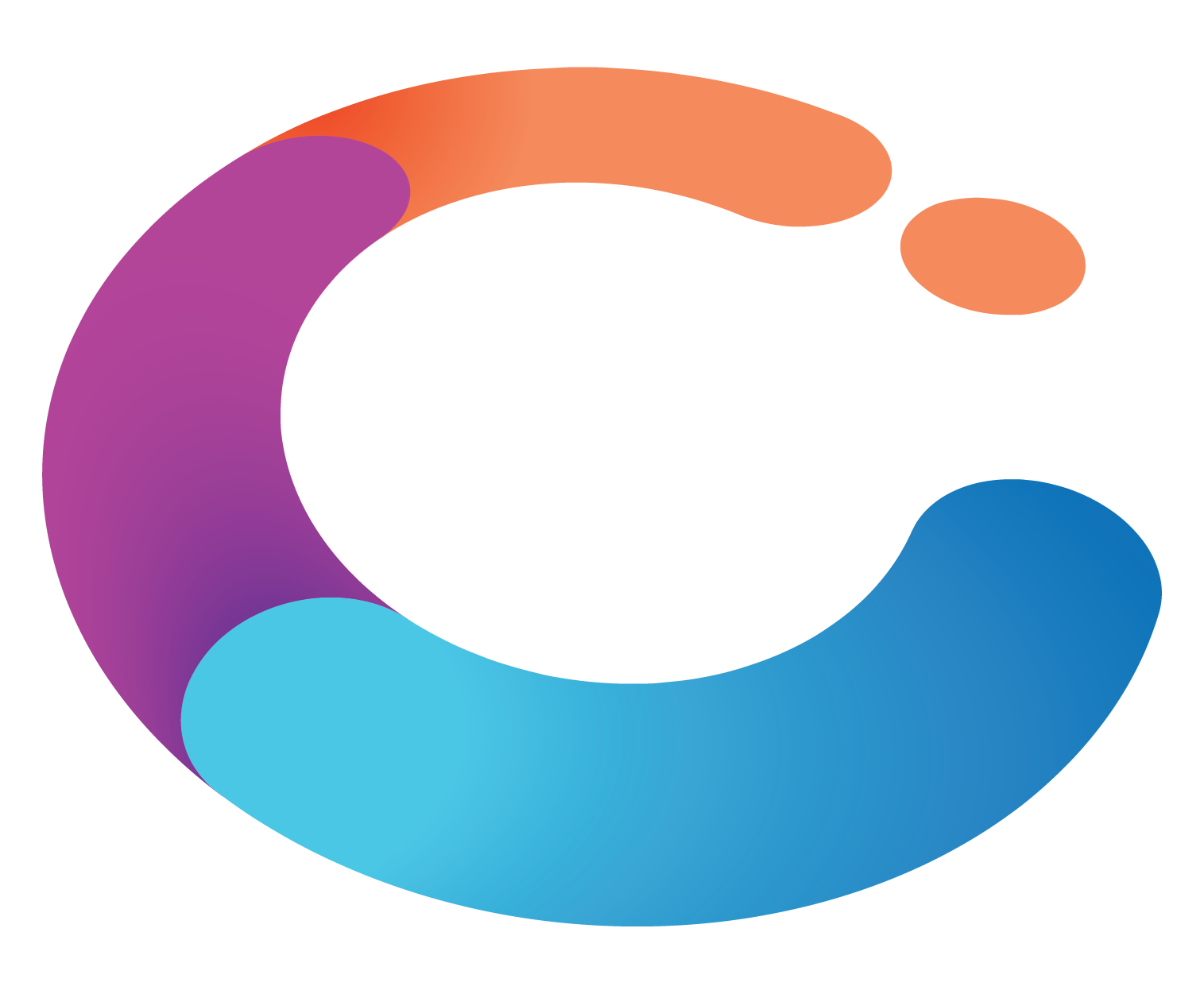Best Practices for Asking Great Interview Questions: Proven Strategies for HR Managers
The article delineates best practices for HR managers in formulating effective interview questions that evaluate both candidate qualifications and...
Engage
|
Hire
|
Develop
|
Assure
|
|
Deeply understand your organisation with science-backed analytics on your culture, team design, and engagement. |
Automatically match to candidates who are a great fit for your team culture and who are intrinsically motivated to succeed. |
Back your onboarding, compliance and skill development with industry-leading credentialling, competency and capability expertise.
|
Reimagine skills assessment and certification with dedicated tools designed to elevate your competency frameworks.
|
.png?width=383&height=200&name=team%20(1).png)
10 min read
 Compono
Apr 22, 2025 3:34:41 PM
Compono
Apr 22, 2025 3:34:41 PM

The article provides an overview of effective hiring practices by presenting sample interview questions and responses that enhance the recruitment process. It highlights the significance of understanding various types of interview questions—behavioural, situational, technical, and cultural fit. Additionally, it discusses the use of structured methods, such as the STAR technique, to improve candidate responses. This approach ultimately leads to better hiring outcomes and increased employee retention.
When seeking a new job and advancing in your career journey, paying close attention to the interview stage is crucial. Excelling in the interview means mastering it, as you will face various questions designed to assess your skills, past experiences, and alignment with the company's values. From exploring your actions to presenting scenarios that evaluate your problem-solving abilities, it is essential to understand these questions thoroughly to succeed.
Additionally, it is important to highlight the significance of formulating responses using methods like the STAR technique, which enables candidates to demonstrate their abilities in an engaging and effective manner. With companies placing increasing importance on recruitment procedures today, it is essential for individuals to utilise tools and resources to prepare themselves for job interviews.
This article explores the intricacies of interview questions, offering advice and strategies to enhance both candidate responses and the overall hiring process.
Grasping sample interview questions and responses is crucial for the recruitment process, as they generally cover different facets. For instance, questions like, "Could you tell me a bit about yourself?" and "What skills do you excel in? Where do you see opportunities for growth?" provide insight into candidates' backgrounds and aspirations. Additionally, inquiries such as, "What is it about this location that draws you in?" and "Could you tell me about a time when you encountered a situation and how you successfully worked your way through it?" help assess problem-solving abilities and cultural fit.
Comprehending the motivations behind these inquiries can greatly enhance the quality and impact of discussions. For example, statistics indicate that a bachelor's degree is required for 35% of roles accessible today. It is essential to highlight the importance of matching applicant qualifications with the demands of the role when using inquiries to evaluate an individual's fit for the position.
Exploring these inquiries by consulting resources like Michael Page can offer valuable guidance on formulating considerate replies and utilising sample interview questions that align with the expectations of the position and the organisational environment. This foundation is crucial, as the likelihood of success greatly rises during discussions. Research estimates that individuals have a 51 percent chance of obtaining an offer after participating in three discussion sessions.
Furthermore, the effects of asking certain inquiries should not be underestimated. According to data from a study conducted by Harris Poll, specific prompts could adversely affect how a company is viewed and discourage applicants from submitting their applications or considering future roles. Thus, it is essential to approach discussions with an awareness of the underlying motives behind each inquiry to ensure they add value to the recruitment experience.
The success narrative of The Coffee Club illustrates the advantages of refining selection processes in enhancing recruitment efficiency, as shown by Compono Hires results. A 35% decrease in time to hire and a notable 20% rise in first-year retention rates were attained by applying improved strategies that emphasise careful preparation and considerate inquiry choices during assessments to elevate hiring results.
Possessing insight into questioning not only improves recruitment strategy but also promotes a positive applicant experience that can lead to better hiring outcomes.
Different kinds of sample interview questions and responses play important roles in the hiring procedure.
Inquiries based on behaviours evaluate actions to forecast conduct, by examining how individuals managed situations in the past as a means to anticipate their future behaviours effectively in advance. A typical behavioural question is 'Tell me about a time you faced a conflict at work,' which allows applicants to showcase their problem-solving abilities and highlight their awareness. Compono's predictive analysis assists HR managers in recognising individuals who have effectively handled situations in the past, thereby enhancing the chances of discovering a suitable match.
Inquiries based on scenarios differ from those that explore experiences and actions of an individual to predict future behaviour patterns and skills. They evaluate critical thinking and problem-solving abilities in hypothetical situations rather than merely concentrating on past actions. For example, a question like 'How would you handle a project with a deadline?' focuses on assisting interviewers in understanding how applicants might tackle challenges that may arise in the position they are seeking. Compono's technology is designed to help build specific question sets by providing data-driven insights into a candidate's likely performance and culture match.
Technical inquiries assist in assessing abilities and expertise relevant to the task at hand. For instance, a prompt could request an explanation of the difference between RAM and ROM. These inquiries are significant for positions that necessitate expertise to ensure applicants possess the required skills. Compono provides human resources solutions that simplify evaluating skills, ensuring that only the most qualified individuals proceed in the selection process.
Cultural fit questions assess how closely an applicant's beliefs align with the values and atmosphere of the company environment. For example, 'What type of work setting brings out your best?' Understanding how an applicant fits into the culture is crucial for fostering team cohesion and ensuring long-term employee satisfaction. Compono's resources assist HR professionals in evaluating compatibility effectively by aligning applicant responses with the company's fundamental values.
When improving your job application, it's crucial to understand these categories so you can customise your sample interview questions and responses to effectively showcase your abilities.
Candid conversations during discussions that concentrate on behaviour can provide insights into how individuals have managed real-life situations previously. Studies show that one in five people has turned down a job offer due to extended hiring timelines, highlighting the significance of streamlining scheduling methods. Additionally, 38 percent of recruiters admit to dedicating between one to two hours organising interviews for each applicant, which can be a discouraging element if not handled properly. This underscores the importance of HR managers enhancing their interviewing processes with the use of Compono's tools to retain employees effectively.
In real-life scenarios like the one at The Coffee Club, they had to update their hiring procedures to accommodate their growing workforce size. With the help of Componos' all-in-one HR tools, they enhanced their recruitment advertisements and streamlined the candidate screening process. As a result of these changes, they managed to reduce the time it takes to hire by 35 percent and increase employee retention by 20 percent in the year. Organised assessments can significantly improve recruitment results, emphasising the significance of timing concerning the kinds of inquiries made during the selection phase.
By organising inquiry questions and grasping their importance, HR managers can develop an engaging and interactive selection process that attracts high-calibre candidates while effectively aligning with the objectives of the organisation.

When crafting your replies, it is essential to employ the STAR method (Situation, Task, Action, Result). This methodology aids in structuring your responses effectively.
Consider a time when you faced a task or challenge. Assignment: Explain the steps you would take in that situation. These actions you took to address the task or problem at hand are crucial. It is important to elucidate the outcomes of your work, ideally supported by numerical data whenever possible.
When someone enquires about a time you assumed leadership on a project, you might respond:
"In my role at work, I was responsible for supervising a team to improve our customer service scores. I implemented a training programme that resulted in a 20 percent increase in customer satisfaction scores within three months."
Approaching situations in this manner not only demonstrates your skills but also indicates that you can reflect meaningfully on your past encounters. Research indicates that job seekers who effectively utilise the STAR method can enhance their chances of success, as only about 1 in 5 interviewees secure the job. By leveraging sample interview questions and responses that align with the needs and expectations of hiring managers, you can significantly improve your chances of success.
Throughout the year, it is beneficial to document your accomplishments for later reflection, which can enhance your responses during job discussions. Compono provides tools to monitor and organise these successes over time, allowing you to create compelling narratives for such conversations.
To showcase your skills effectively and appeal to employers seeking candidates who can articulate their experiences with accuracy and quantifiable results, consider this example: The Coffee Club improved its recruitment processes by introducing Compono Hire software, resulting in a 35% reduction in hiring time and a 20% increase in employee retention over the course of the year. Utilising tailored responses during job discussions can contribute to building cohesive teams and significantly enhancing employee retention rates—research indicates that staff members are more likely to stay longer (by as much as 41%) in companies that offer ample internal growth opportunities.
To enhance the quality of your replies efficiently, practise conducting discussions with a partner or utilise tools like Pramp to simulate questioning scenarios. This approach assists in familiarising yourself with sample interview questions and responses while alleviating any nerves you might experience.
Record your practise sessions using your smartphone or a camera, then watch the videos to assess your body language and vocal clarity. This helps improve your presentation skills and identify areas for enhancement.
Once you've honed your question-answering abilities, seek feedback on your sample interview questions and responses from peers or mentors. This feedback is essential for enhancing your presentation approach and delivering a more impactful performance.
Engage in practise by speaking out loud. Consider expressing your responses to enhance understanding and boost confidence. Utilising the provided information can improve your ability to convey ideas efficiently during discussions.
Consistent practise contributes significantly to attaining success in obtaining a job offer. Individuals participating in discussions are more likely to be employed; studies show that attending three discussions increases the probability of securing a job offer to 51%. It is crucial to acknowledge the difficulties job applicants face during the application phase. Research by Andrei Kurtuys indicates that 60% of applicants abandon applications due to their challenging nature or degree of complexity. With preparation, you will feel more ready to manage unexpected inquiries and retain poise throughout the discussion process.

Maximising available resources and tools is essential to enhance your confidence and readiness before any scheduled meeting. Job search platforms like Indeed and Seek offer candidates a variety of sample interview questions and responses, enabling effective preparation for discussions. These platforms provide guidance on relevant topics tailored to specific roles, ensuring candidates are well-equipped for their interviews.
Preparing for meetings with resources such as Interview Warmup allows individuals to practise answering questions and receive feedback, which can significantly enhance their skills prior to the actual session. This interactive approach aids in refining responses and boosting confidence. Notably, 40 per cent of interviewers consider a candidate's confidence a critical factor in their hiring decisions.
Books and guides featuring sample interview questions and responses serve as valuable tools for understanding the assessment process for job roles across various sectors. Engaging with professionals in your field on platforms like LinkedIn can provide insightful perspectives on the job interview process and the inner workings of companies. Networking not only helps individuals gather information but also fosters connections that may be advantageous during their job search.
Effectively utilising these resources can significantly enhance your preparedness and increase your chances of securing a job. For instance, a travel agency improved its cohesion by establishing a unique culture, leading to better applicant retention and enhanced team spirit. This underscores the importance of preparation and a clear understanding of both the role and the company's values. Furthermore, with 82% of applicants prioritising diversity in the workplace, it is crucial to explore how these tools can help identify candidates who align with your company's principles. According to QLD Access, "We've encountered some excellent individuals joining us through this procedure, and everyone brought on through Compono Hire has remained," emphasising the importance of preparation materials in the hiring process. Additionally, it is noteworthy that 71 per cent of companies provide beneficial feedback to candidates, highlighting the significance of feedback during interviews.

Mastering the interview process is a crucial step in advancing one's career journey, as it equips individuals with the preparation needed for future challenges and aligns their skills with role requirements. By categorising questions into scenarios, situational challenges, technical evaluations, and cultural fit assessments, candidates can effectively tailor their responses to highlight their strengths and alignment with the company's values.
Employing the STAR method to craft responses enhances the clarity and impact of answers, showcasing past experiences and tangible accomplishments. Practising responses in interviews and seeking feedback not only boosts confidence but also hones communication skills, making job seekers more appealing to prospective employers. Furthermore, leveraging resources such as job search platforms and networking channels significantly improves preparation efforts, increasing the likelihood of securing a job offer.
In summary, being well-prepared is essential for navigating the complexities of the interview process. To enhance their performance during interviews and improve their chances of success, applicants should:
In today's evolving hiring landscape, those who invest time and effort in interview preparation will distinguish themselves as candidates in a competitive employment market.
Why are sample interview questions and responses important in the recruitment process?
Sample interview questions and responses are crucial as they cover various aspects of a candidate's background, skills, and aspirations, helping employers assess candidates' qualifications and fit for the role.
What types of questions help assess a candidate's problem-solving abilities?
Questions such as 'Could you tell me about a time when you encountered a situation and how you successfully worked your way through it?' help evaluate a candidate's problem-solving skills and cultural fit.
How does understanding the motivations behind interview questions enhance discussions?
Comprehending the motivations behind inquiries can improve the quality of discussions and help ensure that the questions add value to the recruitment experience.
What role does educational background play in the recruitment process?
Statistics indicate that a bachelor’s degree is required for 35% of available roles, highlighting the importance of matching applicant qualifications with the demands of the position.
How can resources like Michael Page assist candidates in preparing for interviews?
Consulting resources like Michael Page can provide valuable guidance on formulating thoughtful responses and using sample interview questions that align with the expectations of the position and organisational environment.
What is the significance of the number of interview discussions in securing a job offer?
Research estimates that individuals have a 51 percent chance of obtaining a job offer after participating in three interview discussions.
What impact can poorly constructed interview questions have on a company?
Specific prompts can negatively affect how a company is perceived and discourage candidates from applying or considering future roles.
How did The Coffee Club improve its recruitment efficiency?
The Coffee Club refined its selection processes, resulting in a 35% decrease in time to hire and a 20% increase in first-year retention rates by using improved strategies and careful inquiry choices.
What are behavioural questions, and why are they used in interviews?
Behavioural questions evaluate past actions to predict future behaviour, allowing candidates to demonstrate their problem-solving abilities and awareness through examples of how they managed situations.
How do scenario-based questions differ from behavioural questions?
Scenario-based questions assess critical thinking and problem-solving abilities in hypothetical situations, focusing on how candidates might tackle future challenges rather than their past actions.
What types of questions assess a candidate's technical skills?
Technical questions, such as asking for the difference between RAM and ROM, evaluate the specific skills and expertise relevant to the job.
Why are cultural fit questions important in the hiring process?
Cultural fit questions assess how well a candidate's beliefs align with the company's values and atmosphere, which is crucial for team cohesion and long-term employee satisfaction.
What challenges do extended hiring timelines pose for companies?
Extended hiring timelines can lead to candidates turning down job offers, with studies showing that one in five people has done so due to lengthy processes.
How can HR managers streamline their interviewing processes?
HR managers can enhance their interviewing processes by utilising tools like Compono to organise assessments, thereby improving recruitment results and retaining employees effectively.

The article delineates best practices for HR managers in formulating effective interview questions that evaluate both candidate qualifications and...

The article emphasizes best practices for crafting effective interview questions, highlighting their critical role in assessing candidates'...

Effective interview questions are essential for evaluating candidates' qualifications, thought processes, and cultural fit. By focusing on...

Overview The article outlines best practices for interview questionnaires and answers, highlighting the significance of structured approaches to...

Overview The article serves as a comprehensive guide to the most prevalent interview questions and effective strategies for addressing them. It...

Overview The article focuses on best practices for HR managers in formulating effective interview questions to enhance the recruitment process. It...